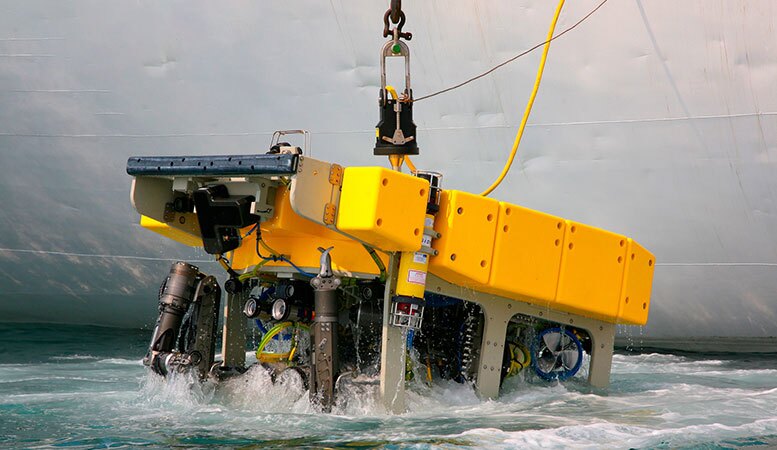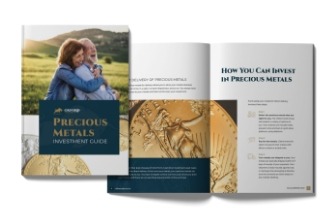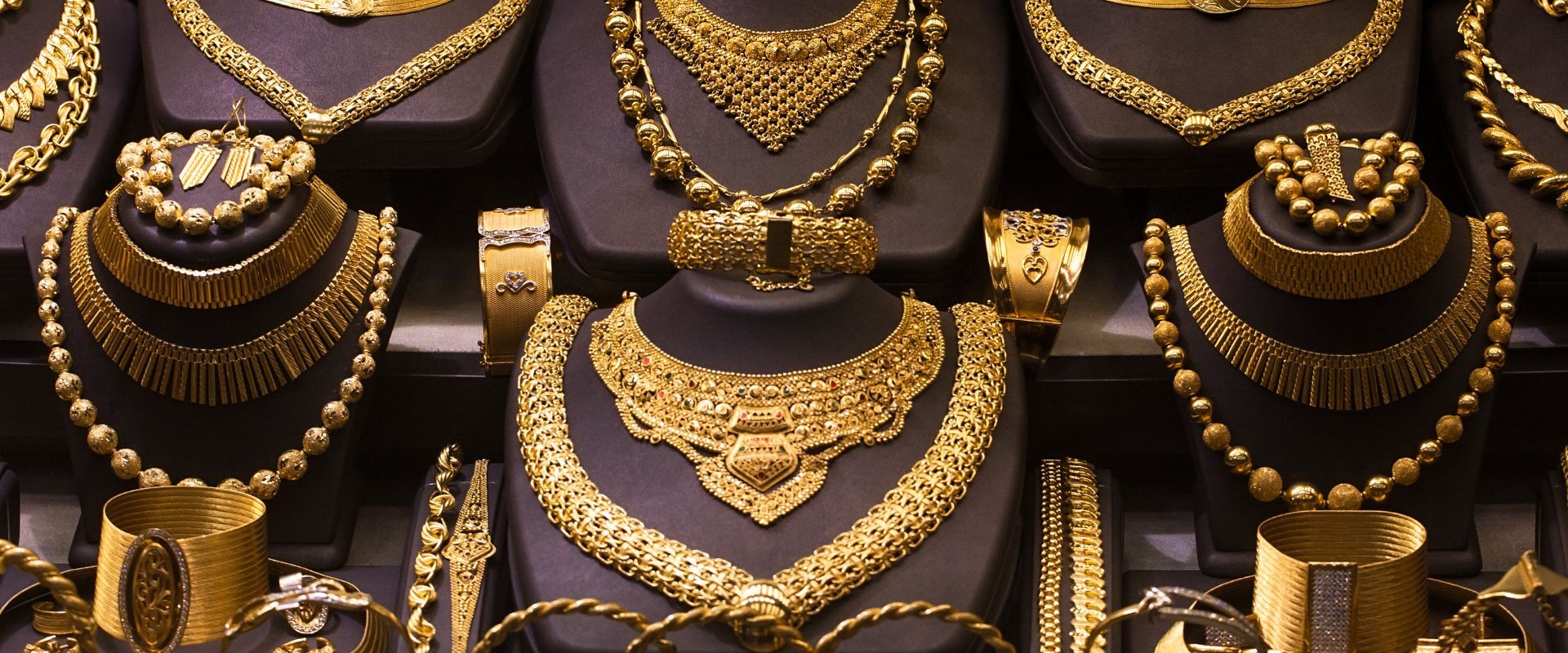Have you ever wondered how much gold is in the ocean?
Current world gold reserves are due to thousands of years of human refining, but the truth is, much of the world’s gold is in ocean waters and deep in situ, beneath the sea bed and the Earth’s core.
The next gold rush could very well occur beneath the waves. According to the U.S. Department of Commerce’s Nation Ocean Service, gold in the ocean is surprisingly abundant. Firstly, there is soluble seawater gold, approximately 20 million tons, equivalent to almost US$ 800 trillion using today’s gold prices, a vast amount to contemplate.
Furthermore, experts suggest that there’s even more gold when we look beneath the sea bed and into the Earth’s core. Estimates put this gold at 1.6 quadrillion tons.
So given that there’s all this gold in the world’s oceans, why are we not mining it yet, and even more importantly, should we?
How Much Gold Is in the Ocean? Why Are We Not Currently Mining It?
Ocean waters, the sea bed, and the Earth’s core all hold gold. However, this gold is not easy to extract, partly explaining why we have not yet mined this precious resource. Deep-sea gold is found in two distinct forms: seawater and deposits.
Seawater Gold
Seawater gold is incredibly dilute and present in minute concentration. A research study found that there was only approximately one gram of gold present for every 100 million metric tons of seawater from the Pacific and Atlantic Oceans. Extracting this minute amount of gold from such a large amount of water would not prove profitable.
Ocean Floor and Mantle Gold Deposits
When we look at the sizeable gold deposits that lie a meter or two beneath the ocean floor and at the Earth’s core, the process of extraction gets even more challenging.
Several reliable sources state there is enough gold in the Earth’s molten center to cover Earth’s surface in a 1.5-foot coating, which would equal approximately 1.6 quadrillion tons! However, we cannot expect to get our hands on this gold as it is far too immersed in molten lava, which poses significant safety risks to both humans and the equipment they would use.
And even if we consider the next best source of easy gold just beneath the sea bed, these gold deposits are encased in rock. Unfortunately, we currently do not have the mining technology to extract it cost-effectively without compromising human safety.
Regardless, mining technology has improved immensely over the years. As recently as 2019, 29 exploration licenses had been issued to cover a total ocean area of five times the United Kingdom’s size.
Should We Be Mining Gold and Other Minerals from the World’s Ocean Floor?

The deep-sea comprises 95% of the world’s habitable area yet remains one of Earth’s most poorly explored regions. The potential long-term impacts of human activities in this habitat have not yet been thoroughly researched or understood.
As deep-sea mining for gold and other precious metals is becoming more and more likely, the jury is still out with many environmentalists like Green Peace, Deep Sea Mining Campaign, Oceana, and International Union for Conservation of Nature due to the possible irreparable damage to seafloor habitats.
The activities related to mining for gold in this environment could release toxic sediment plumes that would blanket the surroundings and choke filter-feeding species and other deep-sea fish. Possible damage to the marine environment and marine life could occur in various forms.
Light, Noise, and Chemical Pollution
Mining would introduce light and noise in an environment that has been dark and silent for billions of years. Given that some species such as whales, sharks, and tuna have adapted to living in an environment without light and relied solely on echolocation to move around and detect food, they could be impacted negatively by the light and noise should mining operations commence.
Additionally, the noise, light, and vibrations generated by surface vessels and marine mining equipment could poison these and other species through potential leaks of fuel and other toxic products.
Harmful Structural Changes to the Sea Bed
Deep-sea mining would also require equipment to scrape the sea bed in search of gold and other metal resources. This action could change or even destroy deep-sea habitats, leading to the fragmentation of the sea bed and a loss of endemic deep-sea species and other marine life.
International Marine Law and the Mining of Deep-Sea Gold
Nevertheless, countries are working to put down a framework under which deep-sea mining for gold and other minerals could enable nations to acquire and share the resources fairly. This framework would prevent permanent damage to the sea bed and require countries to work together within the agreement’s rules, making sacrifices to protect the environment.
The United Nations Conventions on the Law of the Sea (1973 to 1982) informs international law and regulations on deep-sea mining, which began being implemented in 1994. Furthermore, the International Seabed Authority, also established in 1994, is charged with protecting the ocean from mining’s negative impacts.
Because the ocean floor belongs to all nations as per international marine law, the authority is also responsible for ensuring that landlocked countries receive equal benefits from any resources garnered from the ocean. Under international law, the high seas represent approximately two-thirds of the world’s oceans so, equal representation of all countries in any gold mining activity would not only be fair but vital.
The March Towards Deep-Sea Mining and Advancements in Mining Technology

To illustrate the march toward deep-sea mining, we only need to look at the Chinese and many other nations’ efforts, including South Africa, the U.S., and Japan.
As some of the world’s leading nations adopt more advanced marine mining technology, gold and other precious materials are likely to see increased demand, as supply on land is limited. Advanced marine technology will make it possible to easily mine gold and other valuable resources beneath the seafloor, where they are likely to be in higher concentrations than on land.
As the world’s largest gold producer, the Chinese have begun to explore deep-sea mining and currently have more mining and exploration areas in international waters than any other nation. They can also carry out approximately 80% of the world’s mining activities, especially as they already have the boats and equipment required.
On November 10, 2020, their submersible, the Fendouzhe, reached the Mariana Trench’s bottom at 10,909 meters. The Chinese vessel’s chief designer reported that the seabed was abundant with valuable resources that could be mapped for extraction.
Now on to South Africa and the diamond conglomerate De Beers, which has been mining diamonds off the coast of southwest Africa since the 1960s. The possibility of them extending to mining for deep-sea gold and other precious metals such as silver, copper, zinc, cobalt, and manganese is highly possible.
The best potential for sizeable deep sea gold mining lies with several projects worldwide. The Solwara 1 Project, in the waters off Papua New Guinea, has found high-grade copper-gold and massive sulfide resources on the seafloor. Canadian company Nautilus Minerals Inc. announced plans to begin full-scale undersea excavation of mineral deposits using UK-developed technology in early 2018, which was only delayed due to a dispute with the Papua New Guinea government.
The potential for deep-sea mining is being explored at the Clarion-Clipperton Fracture Zone (CCFZ), where rocks composed of several minerals like titanium, copper, and manganese are present. Japan also carried out the world’s first large-scale hydrothermal vent mineral deposits mining from August to September in 2017, using the Research Vessel Hakurei.
It remains to be seen whether deep-sea mining can go ahead without much risk to the environment and sea life or if the undertaking would be too risky. On the positive side, deep-sea mining could promote greener energy systems and innovative consumer technologies, but how impactful the mining disturbances could be on the marine environment and its species is still uncertain.
The Impact of the Ocean’s Gold Reserves on the Gold Market
Experts expect the gold markets to fluctuate significantly given the sustained interest in deep-sea mining and China’s visible efforts to mine gold from the world’s oceans.
The increased supply may cause gold prices to drop in the short term and then level out with time once the demand is met. The constant need for gold in the electronics and other technical industries coupled with increased recent gold investments from countries such as Russia means that gold will always be in demand to meet the industry’s needs.
The electronic devices industry uses gold extensively, and the demand for products such as TVs, smartphones, and computers, which all use gold as a component, is rising. Hence, the need for gold is also expected to rise.
However, the effect the entry of deep-sea gold will have on the gold markets’ long-term state remains to be seen. How much gold is in the ocean and whether this gold can be successfully extracted will play a massive part in the long-term demand for gold and gold’s viability as a safe and steady investment?








